Challenges with Radical Hospitality in Act II of Berkeley Rep’s Production of Notes from the Field, Doing Time in Education
The California Chapter by Anna Deveare Smith
I scan the circle of twenty or so Berkeley Rep audience members tucked backstage behind the scrim of Anna Deveare Smith’s set on a Friday night. Some of them are here for the art, some of them are here for the activism. Regardless of the advance notice about this second act of audience break-out discussions, none of them really know what to expect.
“Okay, so in the first act of Anna’s play, there are multiple references to the urgency of this moment. From Sherrilyn Ifill’s opening monologue to the ever-present clock on stage—did anyone catch that? So, let’s use this sense of urgency as a jumping off point to brainstorm. This is the moment for what?”
Twenty blank faces stare back at me.
Anna’s new play Notes From the Field, Doing Time in Education: The California Chapter explores perspectives from within and around the school-to-prison pipeline, a system of policies and practices that moves students from the classroom to the prison system. Midway through this production, the performance pauses. The six hundred audience members move into pre-assigned break-out groups placed creatively throughout the Berkeley Repertory Theatre complex. Twenty-five minutes later, audiences return to the theatre for a final coda of performance. This structure of audience engagement is new for the institution and new for audiences. In addition to the massive physical transition, it takes time for people to shift mentally, orient themselves to the idea of talking with a group of strangers, and decide to engage. Everyone is hesitant to be the first one to talk.
…how can I use radical hospitality to welcome this man’s opinion, yet not perpetuate racist assumptions or undertones?
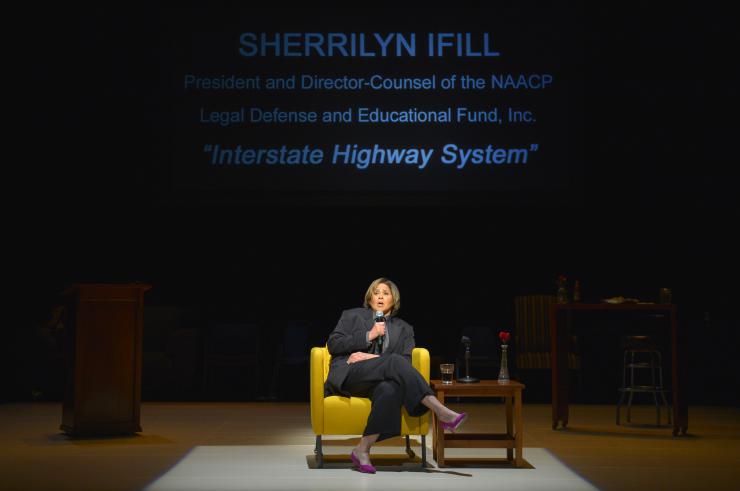
“This is the moment…for what?” I repeat the question for the group and wait.
“Compassion,” a bearded guy from across the circle blurts out.
“Thank you! Way to break the ice,” I say, and write “compassion” on the dry-erase board in squeaky blue marker.
“Mentoring students!” a middle-aged woman calls out with a twisted look on her face as if mid-internal debate.
I nod, recording it on the board.
“I think we need to decriminalize all the lower drugs that aren’t actually harmful!” a man to my left bellows from under his bushy white mustache. “No more arrests for that stuff!” He’s leaning back stiffly with his arms crossed over his chest.
“No more arrests for drugs that…” I begin to write.
“—because those drugs are what’s destroying the black and brown communities!”
His words tumble into the middle of the circle. The man is white and the comment, however well-intentioned, has an immediate racist impact. A handful of people adjust in their seat uncomfortably.
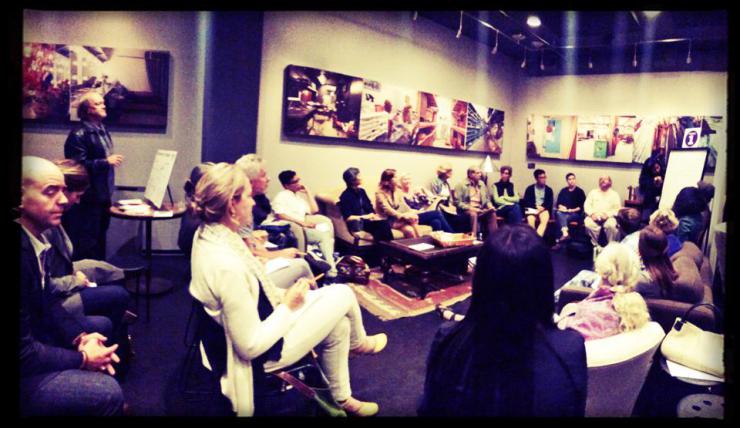
As facilitators, we have been told to embrace a spirit of what Anna calls “radical hospitality.” It is this idea from Jacques Derrida of saying yes first to every opinion, every perspective, every person that comes to these circles. But in quick, pivotal moments like this one, radical hospitality can be complicated. If I welcome and affirm this comment, I comply with a racist sentiment, which gives a clear message to the rest of the group about my values, the values of the show, and more directly, their safety in this space. If I name the racist assumptions in this comment and shut it down, the man feels ostracized and communication ends. If I do what I want to do, which is address the comment head on, reframe it, break down the imbedded assumptions, and work together to restructure the sentiment to honor the person’s intentions without the racist impact, it would use all of the twenty-five minutes we have together. So, how can I use radical hospitality to welcome this man’s opinion, yet not perpetuate racist assumptions or undertones?
“Okay, thank you for that,” I say with a smile, making direct eye contact with him. “As we move forward, I’d like to encourage us to try not to make generalizations or assumptions about other communities of people. Especially about black and brown communities.”
Heads nod in affirmation and I move on.
“Yeah, but the statistics back it up!” he pipes back up, “I’m just stating the facts! If you look at the statistics, these drugs are taking down black and brown people all across the country.”
“It’s interesting that you bring that up,” I counter, “because the statistics actually say that white people use those drugs and commit those low-level crimes just as much if not more than people of color. It’s just that black folks get arrested and punished for it at much higher rates. Hence the data.”
The man is leaning forward with his hands planted on his knees. I expect him to lob a response right back to me. Instead, his face softens.
“Okay,” he says. There is no defeat in his voice. It feels like an opening.
I turn back to the group. “It’s all part of this set of issues we’re talking about, right? So, let’s get back to the brainstorm. What needs to change in this moment?”
Another facilitator would have navigated this situation differently—there is no standard or scripted response for us. This is all part of the grey area of these discussions. The time limit, audience expectations, facilitator experience, group makeup, and even bathroom lines all factor into this unique audience dynamic. From the beginning, Berkeley Rep has embraced this experimental new structure and all the challenges it poses. How do we make sure that the traditional theatre audiences and the activism-driven audiences both feel valued and welcome in the space? How can we reach out to different stakeholders in different ways? What kind of local community partnerships serve this process? Perhaps most visibly, how do we incorporate a whole new vocabulary for how audiences move through the theatre space? Behind the scenes, the BRT team initially predicted that half the audience would leave after the first act. In the end, 90 percent of audiences stayed for the whole experience. People are showing up for the conversations and this radical hospitality, though complicated, may be keeping them here.
“Well, if we’re going to actually change anything, we need to change the question. Can we let go of this moment-thinking and talk about systemic coalition-building?”
The speaker is an older black woman who had used finger quotes when pointing at the dry-erase board. I think she must have been an educator, or an organizer. A comment like this comes from experience, from an insider who has seen how singular actions of good will or mentorship address the symptoms, rather than the large systems. Berkeley Rep conducted a large-scale experiment by directly connecting the art to the advocacy with this structure. Audiences stayed and engaged, but it is only a start.
I turn to the dry-erase board and write. “expand moment-thinking into systemic coalition-building” in squeaky blue marker.
“Yes. Thank you,” I say, snapping my fingers firmly in affirmation. “Who can build on this?”


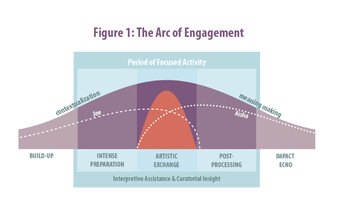

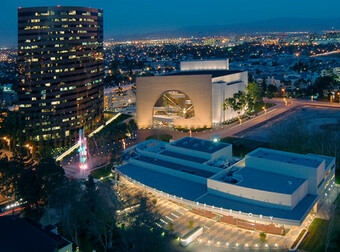

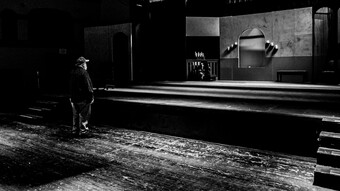


Comments
The article is just the start of the conversation—we want to know what you think about this subject, too! HowlRound is a space for knowledge-sharing, and we welcome spirited, thoughtful, and on-topic dialogue. Find our full comments policy here
This is a brilliant piece - so thoughtful - placing the moment before our eyes and asking us to feel and to think - and to think again.
Here's a good post on "calling in" that I've been thinking about...
http://www.meta-activism.or...
Thank you for documenting this complicated, challenging intervention! I think it's worth mentioning that this structure is not new or experimental. Junebug Productions in New Orleans has been using post show story circles with audiences for decades to build on the themes in their work and move audiences to action. I do think this format is more unexpected in a regional theater setting and I'm glad it's being documented so thoughtfully by such a badass facilitator!
I hope that this article will be continued. I would like to know what people answered to your final question stated here, about "Who can build on this?" (i.e. expand moment-thinking into systemic coalition-building)